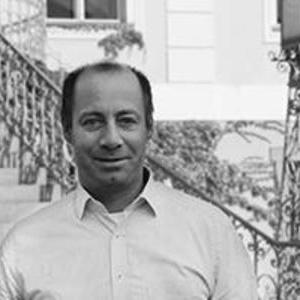Arne Lietz
Arne Lietz was born in 1976 in the town of Güstrow in Mecklemburg and grew up in an opposition-minded family with his three sisters. He was thus part of the last generation in East Germany to experience a divided Europe and repression by the GDR. After the reunification of Germany, he learned about European freedom and peace and participated in school exchanges, language courses and orchestra tours. These trips abroad motivated him to do volunteer work in Boston, USA, organised by the association "Aktion Sühnezeichen Friedensdienste" ( Action Reconciliation Service for Peace). In addition to his volunteer activities, he had the opportunity to work at the Goethe-Institut. He then studied history, political science and pedagogy at the Humboldt University in Berlin and in Cape Town, South Africa.
After graduating, he worked as a historian in the United States, Germany and the United Kingdom for both the American teachers' organisation (Facing History and Ourselves) and the German Bundeszentrale für politische Bildung (Federal Centre for Civic Education). In 2007, he took a job in the MP's office of Engelbert Wistuba of the SPD party. From 2010 to 2014 he was assistant to the Wittenberg mayor Eckhard Naumann. He joined the SPD in 2008, was elected chairman of the Wittenberg branch of the party in 2011 and chairman of the district branch of the SPD in Wittenberg in 2012. From 2014 to 2019, he was a Member of the European Parliament from Saxony-Anhalt and spokesperson for the SPD's working group on defence policy at European level. He was a member of the Committee on Foreign Affairs (AFET) and the Committee on Development (DEVE). He sat as a deputy on the Subcommittee on Security and Defence (SEDE).
He currently works at the Ecologic Institute as a senior policy advisor and at the Brunswick Group as a director. He is a member of Tönissteiner Kreis, Atlantik-Brücke, Germanwatch and Wittenberg Zentrum für Globale Ethik.




